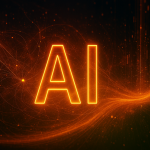The integration of artificial intelligence into employee performance evaluations is emerging as a novel solution to address managerial challenges in the workplace. Business software company Rippling has introduced Talent Signal, an AI-powered tool designed to evaluate employees based on specific task metrics. This development comes at a time when businesses are increasingly seeking efficient ways to utilize their resources and identify employees who require further guidance or are ready for fast-tracking. The tool promises an objective assessment, which traditional methods might lack due to human biases.
How Does Talent Signal Work?
Talent Signal analyzes employee performance by detecting patterns that might be overlooked by managers. This enables companies to make informed decisions regarding workforce management. Rippling’s Chief Operating Officer, Matt MacInnis, highlighted the benefit of AI being able to dedicate time and effort that a human manager might not afford.
“In the ideal case, the manager would pull up a chair next to the employee and spend 90 days with them,”
he remarked, suggesting AI can provide continuous, unbiased evaluations.
What Are the Concerns Regarding AI-based Evaluations?
Despite the potential advantages, the introduction of AI in employee evaluations raises concerns about impartiality and the lack of human judgment. Rippling acknowledges that some individuals might find the concept unsettling. Yet, MacInnis argues that AI is less biased compared to a manager tracking an employee, insisting evaluations should focus on facts rather than subjective opinions.
“The standard 90-day evaluation can’t be about the vibe,”
he stated.
Rippling’s workforce management platform, which integrates HR, IT, and finance, is aimed at being a comprehensive source for employee data. Valued at $13.5 billion after a substantial funding round, the company maintains that employee data is crucial for various business systems beyond human resources.
“Rippling’s core thesis is that employee data is critical to a surprisingly large number of business systems,”
said CEO Parker Conrad.
Reports from previous years highlight the increasing integration of AI in business processes, especially in human resources. However, experts emphasize the necessity for human oversight. Gillian Laging, co-founder of Scopey, noted that while AI can accelerate processes, human judgment remains vital to address nuances and potential issues AI might miss.
This AI-driven approach to workforce assessments has sparked discussions on its effectiveness and ethical implications. While Talent Signal offers a data-driven, unbiased alternative to traditional evaluations, it highlights the ongoing debate about AI’s role in workplace management. As companies continue to explore the potential of AI, it becomes crucial to balance technology with human insight, ensuring a comprehensive approach to employee evaluations.










